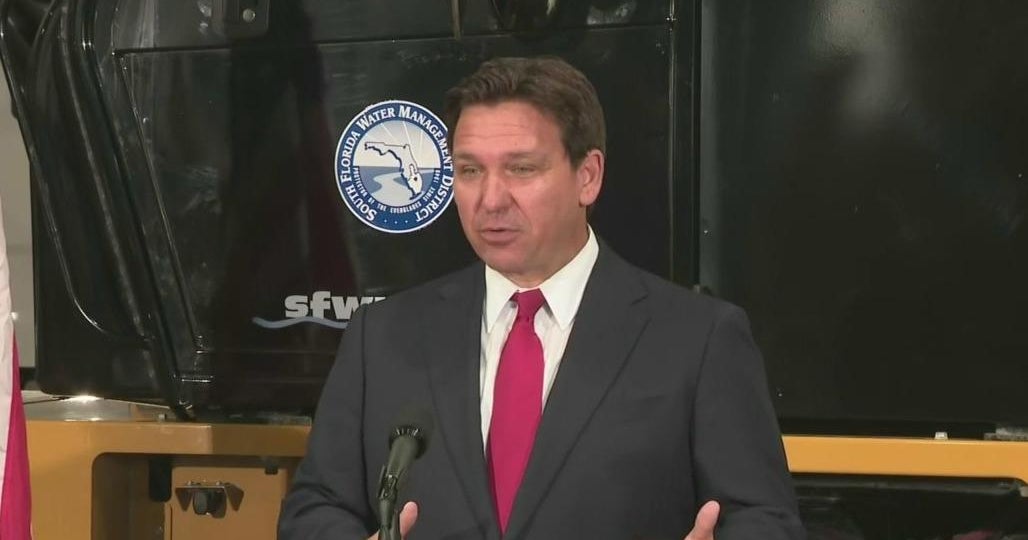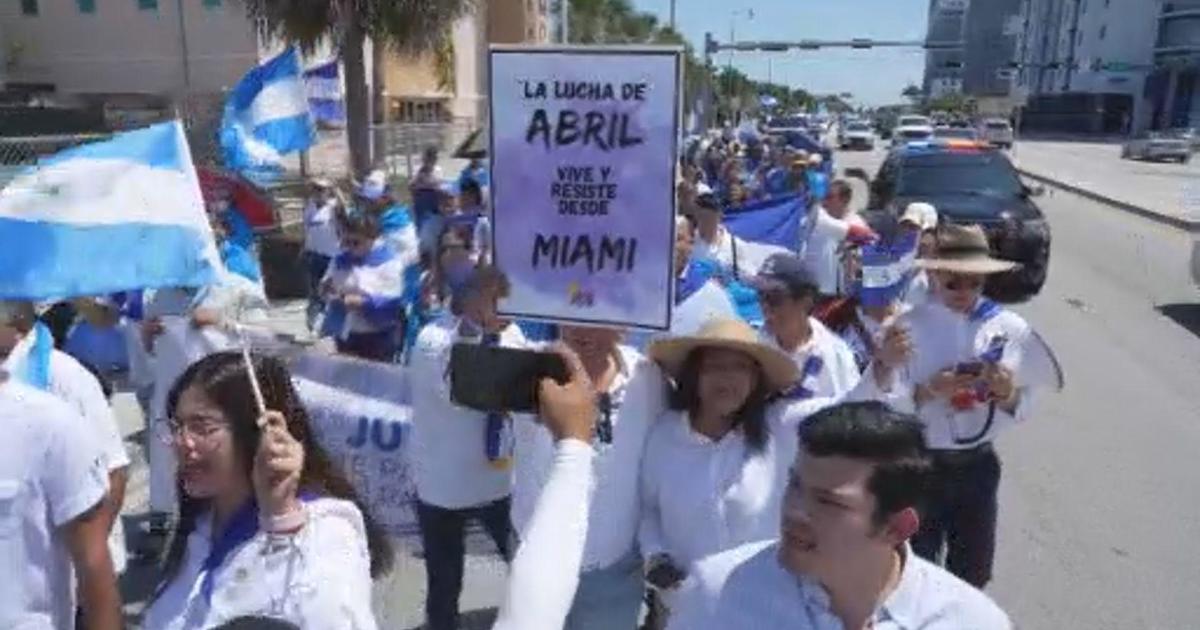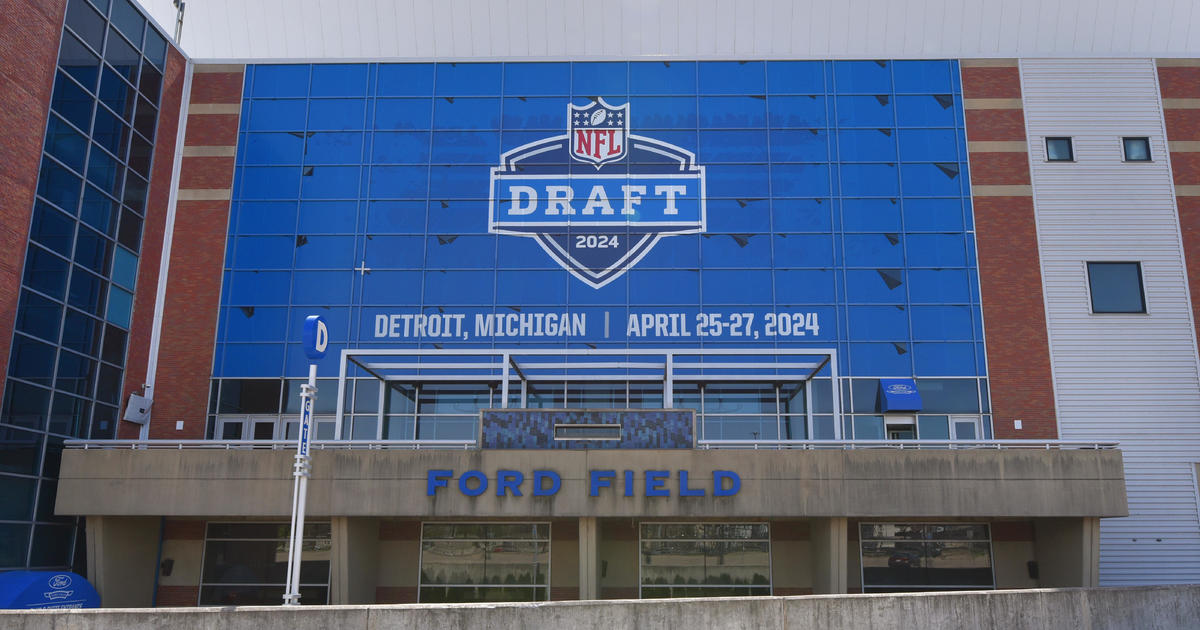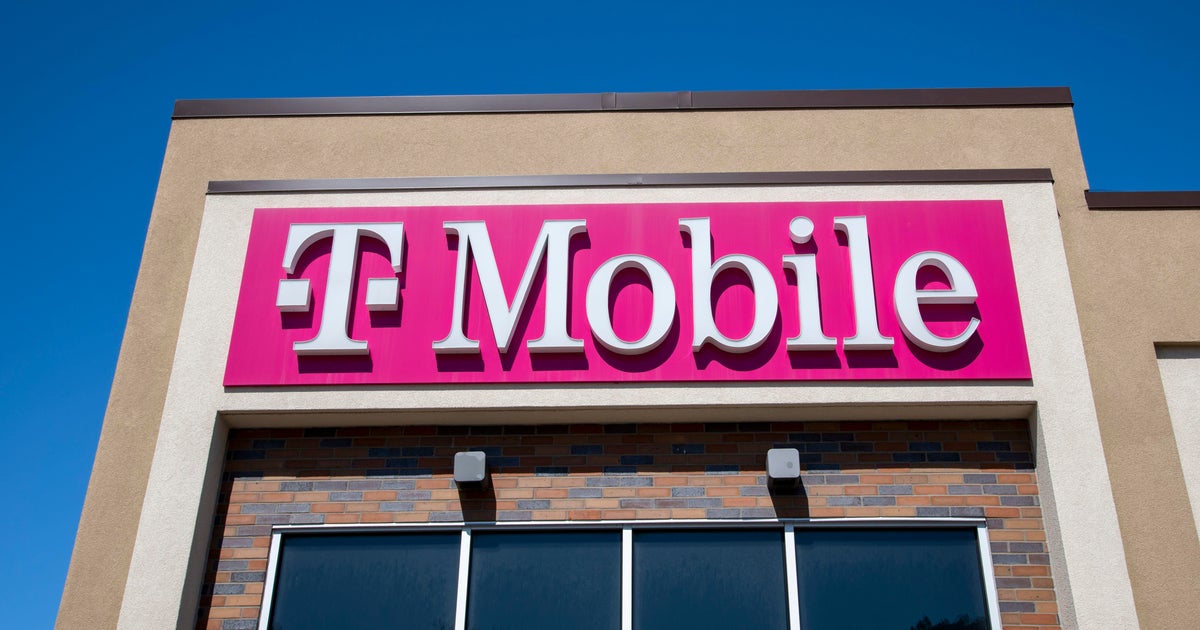Gov. Scott Trying To Avoid Port Work Stoppage
MIAMI (CBSMiami/AP) – In an effort to prevent a work stoppage at Florida's ports this weekend, Gov. Rick Scott held a conference call with port executives Thursday to discuss the impact of a possible strike. The call included port leaders from Miami, Jacksonville, Tampa, Manatee County, Palm Beach and Port Canaveral.
Those ports could be affected if talks between shipping companies and the dockworkers union break down. A contract between the two groups expires on Dec. 29. Negotiations are ongoing between the International Longshoremen's Association and the United States Maritime Alliance.
"While we are encouraged that these groups continue to meet, we must bring attention to the fact that the livelihoods of thousands of Florida families hang in the balance if they do not reach an agreement by Saturday," Scott said in a statement. "If a strike or a lockout occurs at that time, Florida's largest ports could be shut down, sending shockwaves through jobs all across our state – including truck driver jobs, manufacturing jobs, warehousing jobs – and many jobs beyond the ports themselves. A shut down of Florida ports is simply not an option for Florida families."
Scott said cargo-related activity at Florida seaports is responsible for 550,000 direct and indirect jobs in Florida and contributes roughly $66 billion in economic value to the economy.
In Miami, the port known as the "Cargo Gateway of the Americas" brings in $18 billion annually.
"A disruption of cargo flow in and out of our ports would have a negative effect on the national economy and reverse any gains we have made in job growth this year," PortMiami Director Bill Johnson said on the conference call. "PortMiami, along with all Florida Ports, is working with Governor Scott's office in asking that labor talks continue."
Stephen Beatus with The Beacon Council calls PortMiami an "economic driver" of Miami-Dade County.
"The repercussions throughout our community would be very, very great if the port were to cease for any amount of time," Beatus told CBS 4's Lauren Pastrana Thursday. Beatus said the strike "will have national if not international implications. The State of Florida has more ports than any other state."
The International Longshoremen's Association and the U.S. Maritime Alliance are trying to reach a deal that would affect more than 14-thousand workers at 15 ports along the East and GulfCoasts.
Many of them work at PortMiami. ILA Local #1416 is based out of Miami.
"This would be hundreds of thousands of families in terms of livelihood disrupted," Johnson said on the conference call. "You would start to see if there is a strike within a matter of days product disappearing from the store shelf."
At Port Everglades, the Deputy Port Director met with interested stakeholders to discuss the impacts of a possible strike Thursday.
"There will be impacts on members of International Longshoremen's Association, an impact on their families and an impact on businesses that rely on activity at the port," Port Everglades Deputy Director Glenn Wiltshire said.
Perishable commodities, military cargo, containerized mail, and passenger ships won't be impacted according to guidelines set by union brass in a memo posted on the ILA's website.
But you don't have to have business at the port to feel the effects.
"There'd be a shortage of products in stores, thus an increase of prices," freight company operator Melvyn Cohen said. He deals with shipments in and out of Port Everglades. He attended Thursday's information session.
Governor Rick Scott has asked President Obama to invoke the Taft-Hartley Act in the event dockworkers walk off the job. The federal law orders mediation and a cooling off period.
Last Friday, Scott wrote to President Barack Obama saying he was deeply concerned about the potential economic impact of a strike, warning it would be "devastating."
"Our ports are such a vital part of our job market, we have made them a top investment priority during my administration. In the last three years, we invested $421 million in our ports to take advantage of the benefits of trade with Central and South America, and to prepare our state for the expansion of the Panama Canal and the potential for increased trade with Asia," Scott said. "In fact, I have personally visited some of these countries on trade missions to highlight the value of our Florida ports and the quality of our workforce."
The Taft-Hartley Act allows the president to intervene in a labor dispute if he believes national health or safety could be endangered. It allows the government to seek an 80-day injunction against any strike that could endanger national health or safety.
The White House urged both sides to reach agreement "as quickly as possible" on a new contract. The White House said it's monitoring the situation closely and asked both parties to continue their negotiations.
"A strike is not an option," Bill Johnson said. "We need the U.S. President to really take strong leadership on this if in fact a strike would occur."
Large retailers have been stockpiling inventory, the Wall Street Journal reported this week, fearful of goods getting stuck on docks next week.



